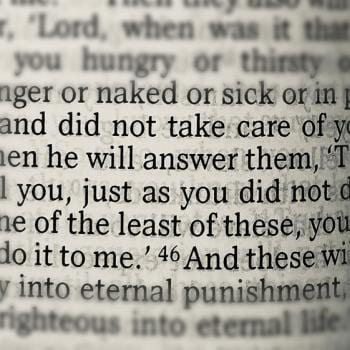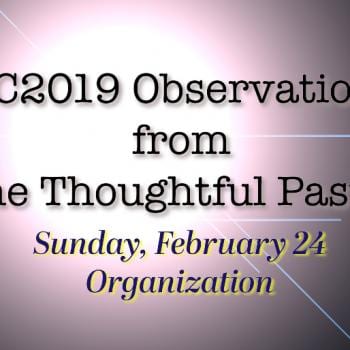It is cold here right now in North Texas. Wind is blowing wildly, temperatures continue to drop and we are on target for record lows tonight. Areas just slightly to the west and north are under a frost watch. I suspect my own garden may get a bit of frostbite because it is on the north side, high up, with a large pasture behind it, so there is nothing to block the wind and cold.
I went out and piled straw around all the warm weather plants. Am hopeful they won’t be damaged. However, many gardeners and farmers may wake tomorrow to a fair amount of destruction.
As always, weather really does win. All who have reasonably well-insulated houses and functional heaters will stay comfortable. But for those who don’t . . .
These thoughts always lead me to the mandate that we are called to be in ministry with the poor. I honor that, respect that and believe that it is nearly impossible for anyone who is reasonably protected to actually do that.
I’ve been doing a lot of reading and research this past year, trying to get a handle on what it means to be poverty-striken. Now, there are lots of kinds of poverty: spiritual, educational, financial, social, and cultural, just to name a few. I think it is possible to have few monetary resources and not be poverty-striken, but those who manage that generally have rich inner resources and strong community support. Most of the time, being impoverished in one area means the rest of the areas also suffer from the effects of poverty.
I understand that the vast majority of people in the US who end up in bankruptcy or in other terrible financial binds get there, not because of financial mismanagement or spending too much on luxuries, but because of the atrocious cost of even basic health care. Emergencies and chronic illnesses, again much more common among those living in poverty to begin with, can send people into a never-ending spiral of greater debt, more ill-health, less ability to work, leading to greater debt, greater stress and even more ill-health.
And here is my conundrum: how can we, particularly as United Methodists, confidently affirm that we seek to be in ministry with the poor when we have the straw blanket of fairly decent health insurance tucked all around us?
To be really, seriously, stuckly poor means no health insurance and extremely limited access to what few available means there are for medical care and the practice of habits that bring health rather than destroy health.
Last year, I had to undergo my first-ever surgery. A rapidly growing uterine tumor starting causing enough symptoms to set off alarm bells that even I would listen to. Although I did have visions of someday being written up in a newspaper story (Headline: “Woman With Watermelon-sized Tumor Steadfastly Denies That Anything is Wrong”), and after grieving that I would not be able to reach my stated goal of dying with all my lady-parts intact, I agreed to a hysterectomy.
Sure, I had co-pays. Absolutely the hospital wanted their money up front. It was a lot of money for me. The insurance company paid their part (a pittance of the actual bill), and then it was over. I was lucky. The tumor turned out to be benign, despite its rapid growth. (One of the nurses in the hospital said, “I could not believe how much your uterus weighed!” I tried to take that as a compliment.) I recovered reasonably uneventfully, although I will say it is not a good idea to take an international flight just a couple of weeks after that kind of surgery.
But more to the point: if I had not been able to wave my handy-dandy insurance card around, and whip out a high-limit credit card for my own part of this event, I would have faced these choices: One, go ahead and let the tumor grow. Two, have the surgery and be faced with years of paying off those bills. And that was a relatively inexpensive procedure with no complications.
I am not rich, but I have straw blankets all around me. I have a level of protection that cushions me to such a point that despite my real concern for those who do live in poverty, I can’t fully enter into their experience.
I do not know what it is like to live so close to the edge that a child sick for just a couple of days can have such an impact that my whole house of cards comes tumbling down.
If we are really going to do ministry with the poor, then we need to be in solidarity with the poor over these issues of health care. I admit I do not know how to do this. I don’t want to relinquish my own health insurance. But I am reaching a point where I think it smacks of great hypocrisy to make that statement as a guiding principle and then live with the kinds of straw blankets around us that too many are routinely denied.













